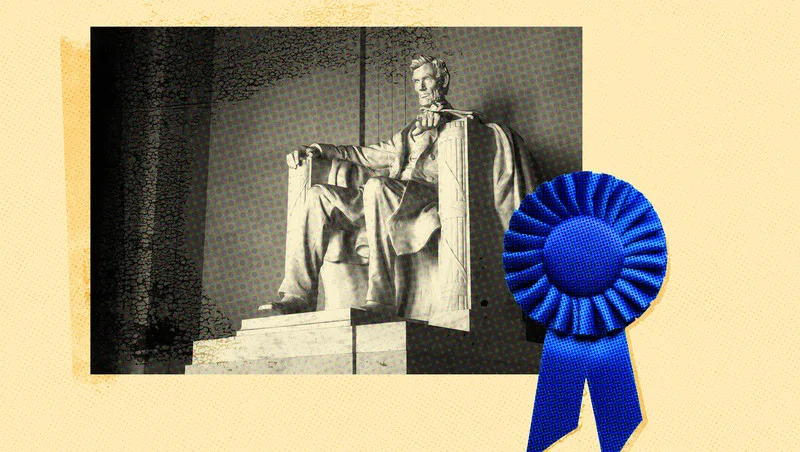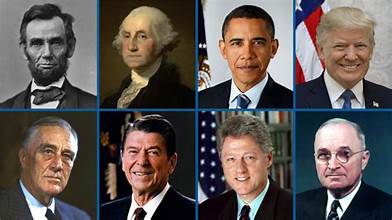Historians rank Trump worst president in history, Lincoln the best
Presidential rankings by academics place Obama, Biden above Reagan, Trump

The 2024 Presidential Greatness Project Expert Survey, commissioned by a pair of political scientists from the University of Houston and Coastal Carolina University, asked 154 political scientists and other experts to rate each U.S. president on a scale of 0 to 100 for their overall “greatness.” The totals for each president were averaged then ranked.
Lincoln finished first, with an average rating of 93.87; Franklin Delano Roosevelt finished second (90.83); George Washington, third (90.32). Teddy Roosevelt (78.58) and Thomas Jefferson (77.53) rounded out the top five.
When defining “greatness,” scholars think beyond what they view as a “good” president, said Justin Vaughn, a professor of political science at Coastal Carolina and one of the survey’s organizers. “A great president is one who expanded the institution of the president, who presided over a growth in American power or who led the country through a crisis — those types of things,” Vaughn said. “It goes beyond whether or not you agreed with the president’s politics, or whether or not you think he was ‘good.’”
When offering their ratings, the scholars were given no instructions, other than to give them a numerical rating for their “overall greatness.” Rounding out the top 10 were Harry Truman (75.34), Barack Obama (73.8), Dwight Eisenhower (73.73), Lyndon B. Johnson (72.86) and John F. Kennedy (68.37).
President Joe Biden (62.66) was ranked the 14th greatest president, while Ronald Reagan (61.62) ranked 16th. Other recent presidents didn’t fare as well, with George H.W. Bush (58.54) in 19th place, and his son George W. Bush (40.43) 32nd.
The lowest-ranked president was Donald Trump (10.92).
This is the third iteration of the Presidential Greatness Project survey, with previous studies conducted in 2015 and 2018. There is consistency through many of the results, though there were a handful of significant changes.
In this survey, Franklin D. Roosevelt overtook Washington for the No. 2 spot. Ulysses S. Grant climbed from No. 28 in 2015, to No. 17 in 2024. Andrew Jackson fell from No. 9 in 2015 to No. 21 in 2024.
As part of the survey, respondents were asked to identify ideologically (conservative, moderate or liberal) and politically (Republican, Democrat or independent). Responses across ideological and political lines are fairly consistent — self-described Republicans and Democrats have almost-identical top-fives, though Republicans chose Reagan for the fifth slot and Democrats chose Jefferson.
The most significant political differences are apparent when viewing recent presidents. “While there’s very little disagreement about Lincoln,” Vaughn noted, “there’s lots about Joe Biden or Obama or George H.W. Bush or Reagan.” For example, self-described conservatives rank George H.W. Bush ninth; liberals rank him 20th.
In addition to asking respondents to rate each president’s greatness, they also asked them which should be the next president added to Mount Rushmore. Franklin D. Roosevelt was the first choice by a wide margin, with over 65% of respondents choosing him. The next closest? Obama (11%), followed by Eisenhower, James Madison and Kennedy (4% each).
Scholars were also given the open-ended question: How do you define greatness? Vaughn said he’s noticed some changes in recent years in responses to this question. The line between what makes a great president and a good one is being slightly blurred, Vaughn said. “They are thinking about norms of the office, respect for the presidency, democratic norms,” Vaughn said. “They are starting to conflate ‘good’ and ‘great.’”
Vaughn noted this may be a result of the “moment of incredible political tension,” in which we live. “It’s not a reflection of theoretical evolution of how we perceive presidents,” he said. “It’s a reflection of how strongly people perceive the stakes to be at this moment in time, and that seeps into how we view anything related to politics.”
This story was originally published on DESSERT NEWS February 19, 2024 edition.



